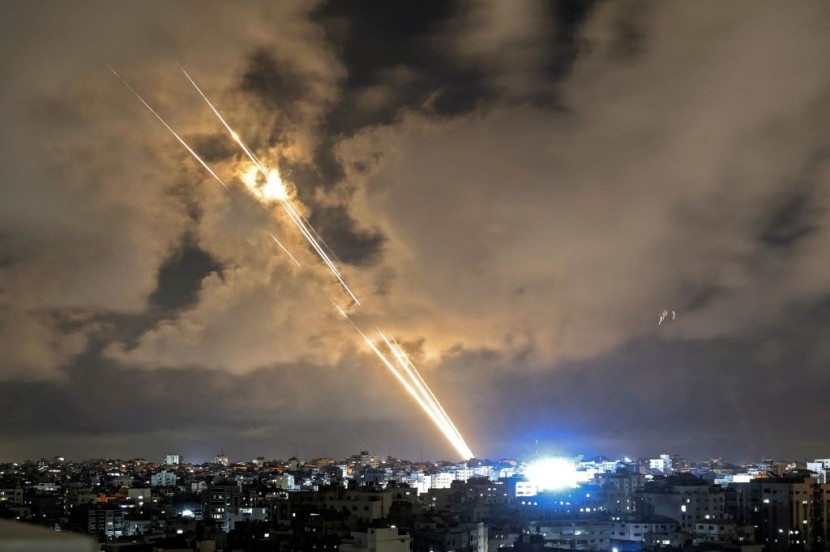Israel-Gaza conflict continues to escalate as Israel's military asserts it has effectively segregated Gaza City from the rest of the coastal enclave, declaring the presence of a "north Gaza" and "south Gaza."
This division comes amidst a comprehensive communications blackout, the third such incident since the commencement of the conflict, impeding the flow of information from the war-torn area, as per FOX 5.
Communications Blackout, Humanitarian Crisis in Gaza

The blackout, documented by NetBlocks.org and confirmed by Paltel, a Palestinian telecom company, casts a deep shadow on the plight of Gazans. These severing lines could otherwise carry urgent narratives of the conflict's evolution. UN officials, including UN Palestinian refugee agency spokesperson Juliette Touma, report a disturbing loss of contact with personnel, hampering humanitarian response efforts.
Israel's military offensive has intensified, with air raids reaching into densely populated refugee camps, resulting in significant casualties. In one incident, Israeli airstrikes targeted central Gaza, including two refugee camps, reportedly leading to the deaths of 53 people and leaving dozens wounded.
These strikes have unfolded despite calls from the international community, including the United States, for de-escalation and a ceasefire to allow humanitarian relief. The toll on human life has been stark, with the Gaza Health Ministry citing over 9,700 Palestinian casualties, including a profound number of children and minors.
Israeli advancements in urban areas suggest these numbers may yet climb. Conversely, the Israeli military reports the loss of 29 soldiers during the ground operations, as well as the discovery of weapon caches within Gaza, indicating the intense and complicated nature of urban conflict.
Amidst this backdrop of violence, US diplomacy has been active, with Secretary of State Antony Blinken engaging with both Palestinian and Israeli leadership. Blinken's discourse with Palestinian President Mahmoud Abbas underscored the complexities of governance and the prospect of a "comprehensive political solution," according to Reuters.
Ceasefire Strains Amidst Gaza Tensions
At the same time, discussions with Israeli Prime Minister Benjamin Netanyahu stressed the conditionality of a ceasefire tied to the fate of Israeli abductees.
In the broader regional context, the war has reverberated beyond Gaza's borders, manifesting in increased tensions with Lebanon, specifically with the militant group Hezbollah. This has included cross-border fire and tragic casualties, thus raising concerns about a widening conflict scope.
Humanitarian efforts have seen a glimmer of activity, with Jordan facilitating an airdrop of medical aid, albeit in the shadow of a substantial aid deficit described by Blinken. Nevertheless, the people of Gaza face a dire humanitarian situation, with a significant portion of the population displaced and critical shortages in essentials such as food, water, and medical supplies.
The international community has voiced various responses, with calls for an immediate ceasefire juxtaposed against strategic military considerations. This complicated global response is further tangled by the specter of escalated military presence, including the positioning of a US Ohio-class submarine in the Middle East, whose capabilities carry significant implications.
As the conflict persists, the global dialogue grapples with proportionality, responsibility, and the path to peace and stability. The situation in Gaza stands as a testament to the enduring and tragic complexities of the region's geopolitics, humanitarian concerns, and the search for a resolution that seems as distant as ever amidst the current conflagration, MarketWatch reported.
Related Article: Palestinians Break Into Gaza Aid Warehouses, Stealing Basic Supplies
© 2025 HNGN, All rights reserved. Do not reproduce without permission.








